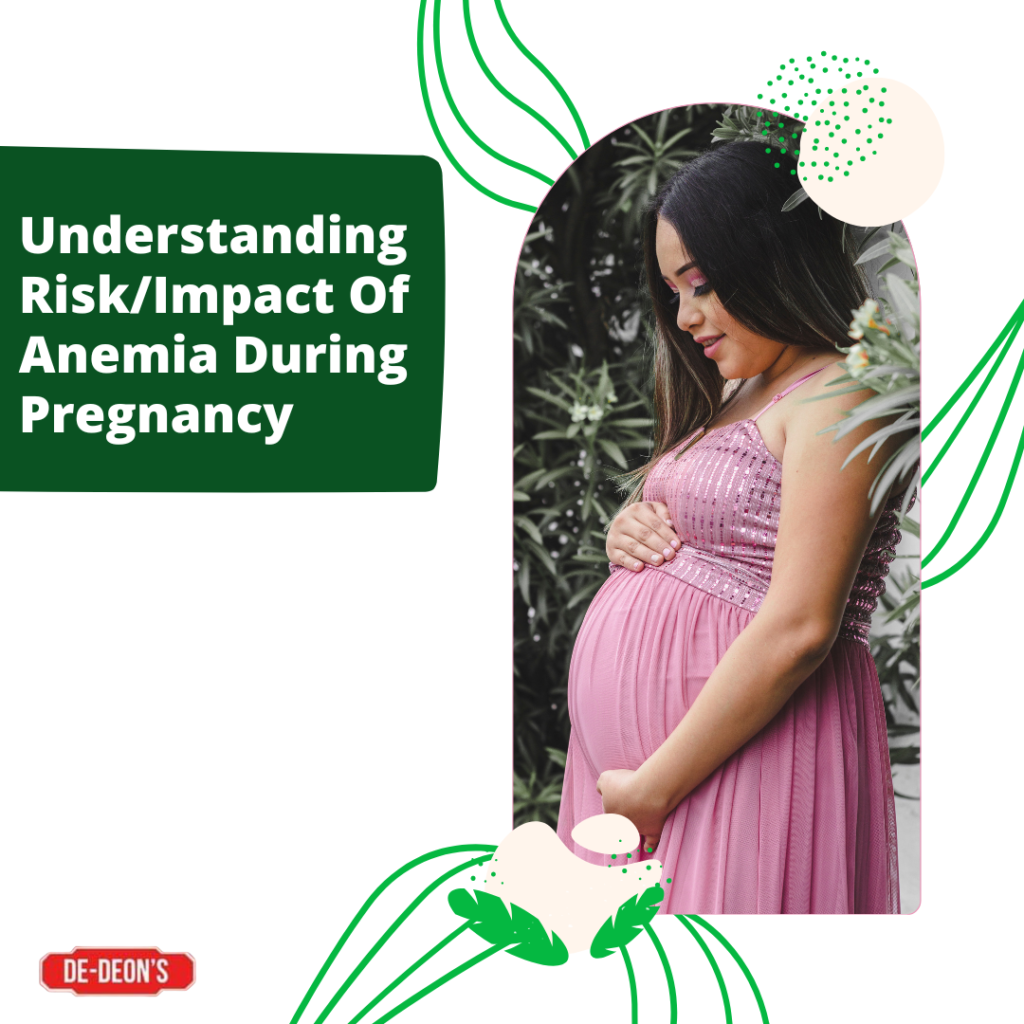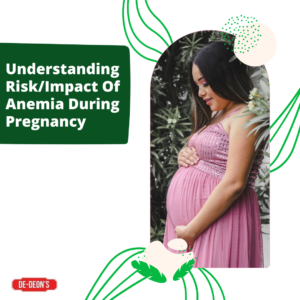Understanding the Risks of Anemia in Pregnancy: Protecting Maternal and Fetal Health


Pregnancy is a trans-formative and joyous time for expectant mothers. However, it is essential to prioritize maternal health and be aware of the potential risks that can arise. One such concern is anemia, a condition characterized by low levels of red blood cells or hemoglobin. In this blog post, we will delve into the risks associated with anemia in pregnancy and explore the importance of early detection and effective management.
What is Anemia?
Anemia occurs when the body lacks an adequate number of red blood cells or hemoglobin, which are responsible for carrying oxygen to the body’s tissues. During pregnancy, the body’s blood volume increases to support the growing fetus, placing additional demands on the mother’s red blood cell production. If the body cannot meet this demand, anemia can develop.
Risks of Anemia in Pregnancy:
- Maternal Fatigue and Weakness: Anemia often manifests as fatigue, weakness, and a general sense of lethargy. These symptoms can impact the mother’s overall well-being, making it challenging to cope with the physical and emotional demands of pregnancy.
- Complications During Delivery: Anemic pregnant women may be at a higher risk of excessive bleeding during childbirth (postpartum hemorrhage). Insufficient red blood cells can hinder the body’s ability to form blood clots, leading to increased blood loss and potential complications.
- Premature Birth and Low Birth Weight: Severe anemia has been linked to an increased risk of premature birth and low birth weight. Babies born prematurely or with low birth weight may face developmental challenges and have a higher risk of health problems in their early years.
- Developmental Issues in the Baby: Anemia can impact the baby’s development in the womb. Insufficient oxygen supply due to low hemoglobin levels can impair the baby’s growth, potentially leading to cognitive and developmental delays.
Prevention, Detection, and Management:
- Prenatal Care: Regular prenatal check-ups are essential for monitoring the mother’s health and detecting anemia early. Healthcare professionals can perform blood tests to measure hemoglobin levels and ensure appropriate interventions if needed.
- Iron-Rich Diet: Consuming iron-rich foods, such as lean meats, leafy green vegetables, legumes, and fortified cereals, can help prevent anemia. Combining iron-rich foods with vitamin C sources enhances iron absorption. Healthcare providers may also recommend iron supplements if dietary intake is insufficient.
- Folic Acid and Vitamin B12: Adequate folic acid and vitamin B12 levels are crucial for red blood cell production. Prenatal vitamins often contain these nutrients, but it is essential to follow medical guidance regarding supplementation.
-
Blood Transfusions or Iron Therapy: In severe cases of anemia, blood transfusions or iron therapy may be necessary to restore hemoglobin levels. Healthcare professionals will carefully assess the risks and benefits of these treatments based on individual circumstances.
Conclusion:
Anemia during pregnancy poses significant risks to both the mother and the developing baby. By understanding these risks and taking proactive steps, expectant mothers can protect their own health and promote optimal fetal development. Regular prenatal care, a balanced diet, and appropriate supplementation can help prevent and manage anemia effectively. It is crucial to consult with healthcare professionals for personalized guidance and monitoring throughout the pregnancy journey. By prioritizing maternal health and addressing anemia, expectant mothers can increase their chances of a healthy and successful pregnancy.
